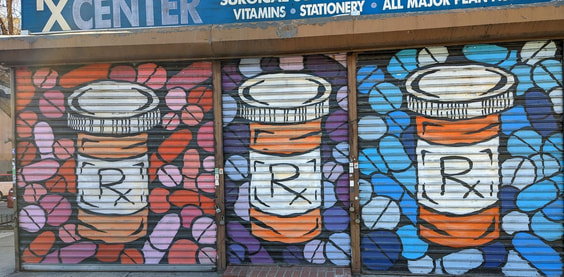|
I read an article this weekend in National Geographic that talked about some new research that has been taking place to study the power and effects of placebo. Placebo is a term that most of us have at least some familiarity with, thanks to pharmaceutical companies. In the late 60's to early 70's, the FDA began requiring drug companies to demonstrate that their medication was actually doing something. Most of these studies compared the results of their medication against a group that took a medication that had no active medication in it (a placebo); and neither group knew which got the medication and which got the placebo. In study after study, a surprisingly large number of people would report improvement with the placebo; a much larger improvement than the group that got no medication. This was surprising to many initially.
In case you are curious, Merriam Webster has a few definitions for placebo- a usually pharmacologically inert preparation prescribed more for the mental relief of the patient than for its actual effect on a disorder b: an inert or innocuous substance used especially in controlled experiments testing the efficacy of another substance (such as a drug) 2: something tending to soothe https://www.merriam-webster.com/dictionary/placebo As you can see, the second definition is the one that I referred to initially, but the first and third are the ones I want to focus on. The phenomenon of experiencing improvement with a placebo is termed the placebo effect. Studies that have specifically looked at the placebo effect have theorized that a person's belief that something would help was at the root of improvement with placebo. How amazing is that?? Thinking (and believing) that something would help can make it happen! To me, this idea was unbelievably powerful- If I believe that something will help, it is more likely to actually help. The power of thinking has become a cornerstone of the way I do therapy with clients, and is a foundational part of how I function on a day to day basis. The new research that the National Geographic article refers to gave subjects a placebo, and told them it's a placebo. The researchers explained to the participants that placebos have been shown to improve a person's condition. The results continued to show improvement, even when the participants knew they were taking a placebo. These studies further demonstrate that it is the belief that results in improvement. Although the placebo effect is generally related to medical conditions (and medication), the idea that your beliefs can influence how you feel has a more general application. So, I conclude by asking you this- are you using the power of your brain to better your life and situation? If the answer is no, what steps can you take to harness this amazing power? Feel free to reach out to me if you want to explore this further. https://www.nationalgeographic.com/magazine/article/why-a-placebo-can-workeven-when-you-know-its-fake?rid=E740AD16C88CC9B4B68125230FD1448B&cmpid=org%3Dngp%3A%3Amc%3Dcrm-email%3A%3Asrc%3Dngp%3A%3Acmp%3Deditorial%3A%3Aadd%3DHealth_20220626&loggedin=true https://www.psychologytoday.com/us/blog/brain-sense/201201/the-placebo-effect-how-it-works
0 Comments
Thanks to the COVID-19 pandemic, I think anxiety is an experience that many of us are more familiar with. In fact, the World Health Organization released a brief that documented an incredible 25% increase in the prevalence of anxiety and depression during the first year of the pandemic. (www.who.int/news/item/02-03-2022-covid-19-pandemic-triggers-25-increase-in-prevalence-of-anxiety-and-depression-worldwide) As people have been able to return to pre-pandemic activities, some began to feel better, but others have found themselves continuing to experience anxiety.
Potential reasons for increased anxiety:
What is one thing that you and I can do today to feel better? Simple, be present. This is something we all hear a lot these days, but what does it mean, and how can we DO it? Anxiety stems from a focus on the future- the things that could happen tomorrow or soon, problems that might come up from a recent change, etc. Because our anxiety is often rooted in our thinking about the future, we can decrease our anxiety now by bringing our thinking to now. A simple way to do this is to focus your mind on what is around you this moment. This requires engaging your mind in a very complete way, so it is too busy to be churning out worries! A common technique is the 5-4-3-2-1 technique. Here is a link to more information about this particular technique- www.therapistaid.com/worksheets/grounding-techniques.pdf If you don't have the time to look at the worksheet, or want something more straight forward; you can just take a few moments to narrate your current environment or actions in your head- "I am sitting in a meeting with 5 of my coworkers around me. John, Sue, and Mary are looking at the boss..." The more detail you generate will equal more time for your mind to focus on the present, and move away from that future focused anxiety. And this technique can be used any time, any where! Have you used this technique before, or did you try it after reading this? I would love to hear about it! |
AuthorI am a therapist- helping people to overcome difficulties and improve their lives. Archives
September 2022
Categories |
Site Links |
| ||||||||||||||
Site powered by Weebly. Managed by FreeLogoServices.com


 RSS Feed
RSS Feed
